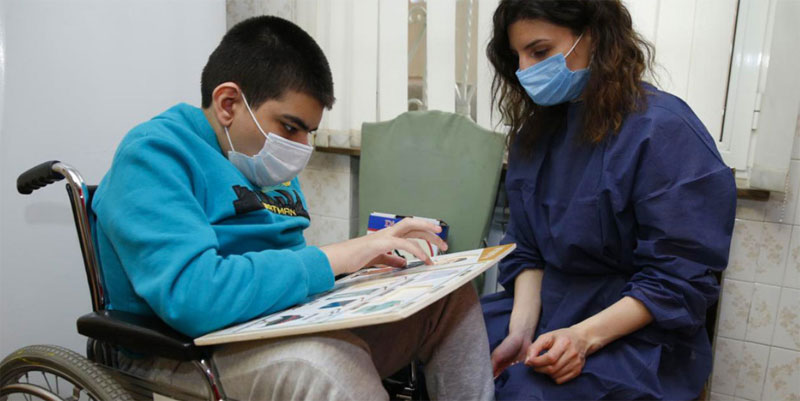 COVID19
COVID19 UN chief: COVID-19 laid bare barriers faced by 1 billion people with disabilities
Marking the International Day of Persons with Disabilities, the United Nations Secretary-General, António Guterres, said on Friday that those with a disability were among the hardest hit by the pandemic.
“COVID-19 has laid bare the persistent barriers and inequalities faced by the world’s one billion persons with disabilities”, he said.
Now, Mr. Guterres argued, a disability-inclusive pandemic response and recovery should be guided by persons with disabilities themselves.
It should also “forge partnerships, tackle injustice and discrimination, expand access to technology and strengthen institutions to create a more inclusive, accessible, and sustainable post-COVID-19 world.”
Human Rights
According to the UN, about 80 per cent of persons with disabilities live in developing countries. An estimated 46 per cent of people aged 60 years and over, have disabilities.
One in every five women is likely to experience disability in her life, while for children, that figure is one in ten.
To respond to the needs of these people, the Secretary-General urged all countries to fully implement the Convention on the Rights of Persons with Disabilities.
Governments, he said, should also work to increase accessibility, and dismantle legal, social, economic and other barriers with the active involvement of persons with disabilities and their representative organizations.
“Realizing the rights, agency, and leadership of persons with disabilities will advance our common future”, he argued. “We need everyone, including persons with disabilities on board, to achieve the Sustainable Development Goals.”
Mr. Guterres concluded saying that, around the world, persons with disabilities and their representative organizations are taking action to make good on a key demand: “Nothing about us, without us.”
Digital world
In her message, the Director-General of the UN Educational, Scientific and Cultural Organization (UNESCO) highlighted how the pandemic had battered those with disabilities.
“As part of our lives moved online, confinement measures have brought to the fore another series of inequalities affecting people with disabilities: the inequalities relating to technology and the digital world”, Audrey Azoulay said.
She noted that, according to the latest Education Monitoring Report (GEM), only 68 per cent of countries have a definition of inclusive education and just 57 per cent mention all the multiple marginalized groups.
For Mr. Azoulay, these are some of the issues that should be discussed at the next UN-backed Global Disability Summit, which Ghana and Norway are co-hosting in February.
Events
Across the world, several events are taking place to mark the day.
In Dubai, the UN organized an event entitled “Shaping an Inclusive Future for All: Leading with Determination”, at the World Expo there.
Also on Friday, the UN Department for Economic and Social Affairs (DESA), the World Intellectual Property Organization (WIPO) and the International Telecommunications Union (ITU) joined forces to debate the theme “Reducing Inequalities Through Technologies: A Perspective on Disability Inclusive Development”.
The Office of the Special Envoy of the UN Secretary-General on Disability and Accessibility, in partnership with the Permanent Mission of Chile, is focusing on “Leadership of the new generations: Children and adolescents with disabilities and their voices post COVID-19”, in another virtual event taking place on Friday.
The UN is also marking the day at its offices in Geneva and Bangkok.
Support Our Journalism
We cannot do without you.. your contribution supports unbiased journalism
IBNS is not driven by any ism- not wokeism, not racism, not skewed secularism, not hyper right-wing or left liberal ideals, nor by any hardline religious beliefs or hyper nationalism. We want to serve you good old objective news, as they are. We do not judge or preach. We let people decide for themselves. We only try to present factual and well-sourced news.







